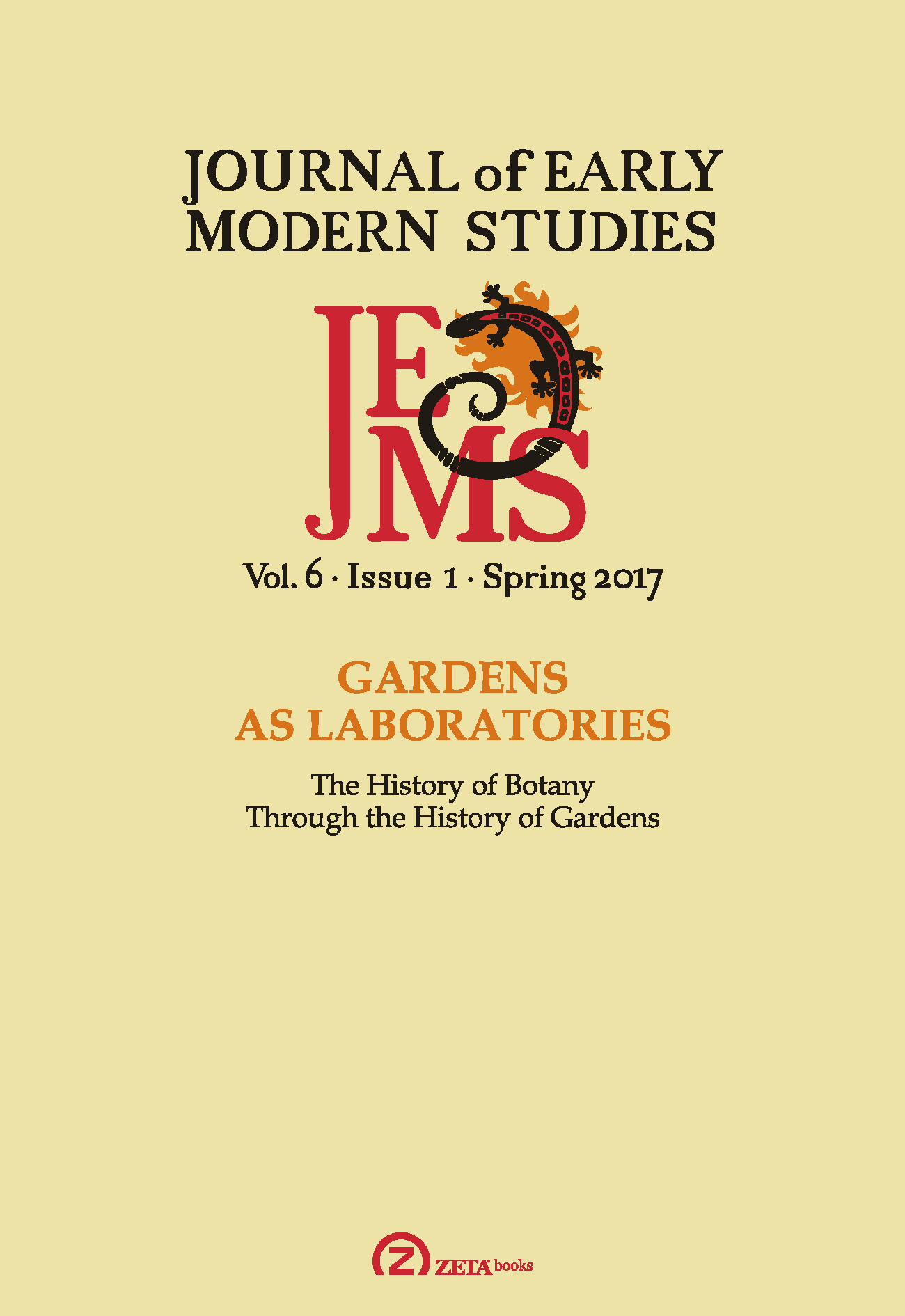Experimenting with “Garden Discourse”: Cultivating Knowledge in Thomas Browne’s Garden of Cyrus
Experimenting with “Garden Discourse”: Cultivating Knowledge in Thomas Browne’s Garden of Cyrus
Author(s): Sarah CawthorneSubject(s): History, Philosophy, History of Philosophy, Modern Age, Early Modern Philosophy, 17th Century
Published by: Zeta Books
Keywords: Thomas Browne; Garden of Cyrus; garden history; natural philosophy; empiricism; doctrine of signatures; early modern prose; ecocriticism
Summary/Abstract: Books were materially and metaphorically botanical in the early modern period. This article uses The Garden of Cyrus (1658), Thomas Browne’s wide-ranging philosophical tract, to illustrate how the often self-conscious links between books and gardens could operate in epistemologically significant ways. It argues that Browne’s repeated positioning of his book as a garden creates a productive model for aesthetic, theological and scientific experimentation and innovation. The framework of the garden constructs a space in which the foremost, apparently contradictory, models of knowledge associated with the seventeenth-century garden—the analogical approach of the doctrine of signatures and the empirical approach associated with the “new science”—can coexist. Extrapolating from the book of nature to suggest the inherently discursive and rhetorical forms of Browne’s knowledge as well as its limitations, the article concludes by proposing a new spatial model for this kind of coterminous literary and experimental approach: the elaboratory.
Journal: Journal of Early Modern Studies
- Issue Year: 6/2017
- Issue No: 1
- Page Range: 137-159
- Page Count: 22
- Language: English
- Content File-PDF

